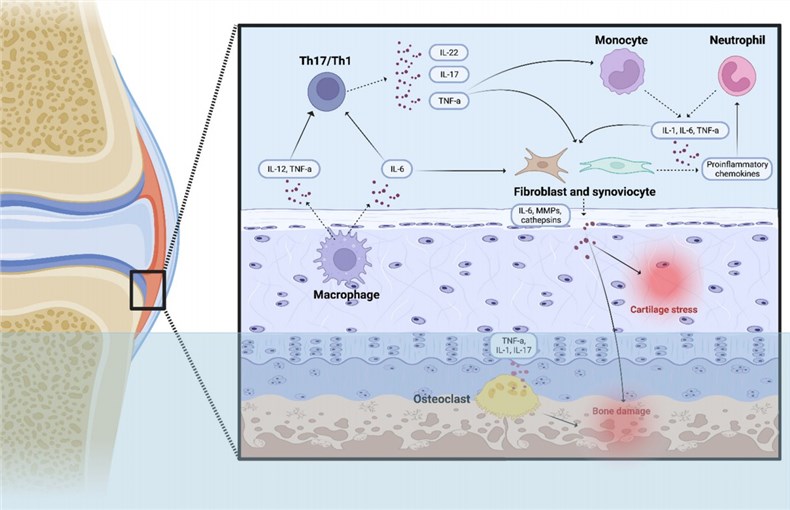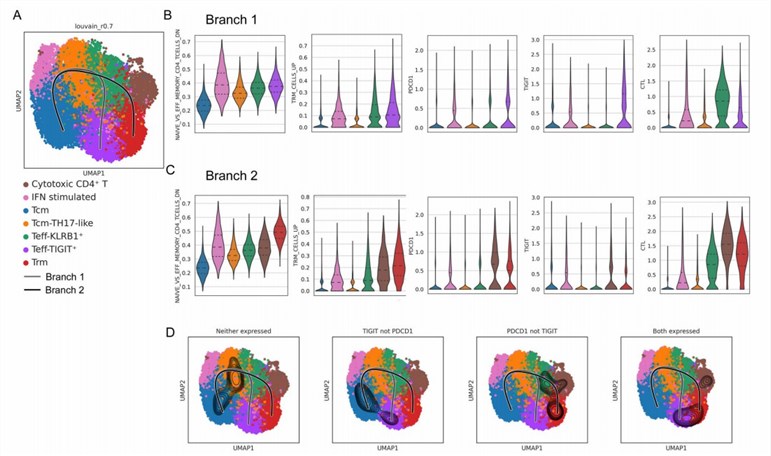Creative Biolabs offers comprehensive and integrated immune checkpoint services, providing theoretical support for immune checkpoint therapy in juvenile idiopathic arthritis (JIA) to our esteemed clients worldwide.
JIA, the most prevalent chronic rheumatic disease in childhood, is driven by T cell-mediated tissue inflammation. Consequently, intervention strategies targeting T-cell immune checkpoints have emerged as significant potential interventions for JIA. T-cell involvement in JIA pathogenesis encompasses:
 Fig 1. JIA and immune cells.1,3
Fig 1. JIA and immune cells.1,3
Numerous pivotal immune checkpoint molecules have been implicated in JIA pathogenesis, serving as potential therapeutic targets. Notably:
Cutting-edge JIA-focused immune checkpoint intervention strategies, encompassing ligand-Fc fusion proteins, agonistic antibodies, bispecific antibodies, and engineered antibodies, are currently under development. These strategies aim to enhance the pathological progression of autoimmune rheumatic diseases. Some notable strategies include:
Title: Clonally expanded PD-1-expressing T cells are enriched in synovial fluid of juvenile idiopathic arthritis patients
Research Objective:
To elucidate the roles of immune checkpoints and T lymphocyte activity in the pathogenesis of JIA and chronic inflammation.
Methodology:
The investigation involved transcriptomic analysis via RNA sequencing to assess gene expression changes. Additionally, flow cytometry was utilized to explore protein profiles, enabling the characterization of T-cell characteristics during chronic inflammation in JIA at the single-cell level.
Research Findings:
The study revealed the presence of clonally expanded tissue-resident memory-like cells expressing notably high levels of PD-1. These cells displayed potent pro-inflammatory capabilities and sustained in situ chronic inflammation in JIA pathogenesis. Consequently, targeting PD-1 as a novel therapeutic strategy holds promise for effectively addressing JIA by directly modulating hyperactive T-cell responses, regardless of cytokine secretion considerations.
 Fig.2 Increased expression of inhibitory checkpoint molecules by SF-infiltrating CD4+ T cells.2,3
Fig.2 Increased expression of inhibitory checkpoint molecules by SF-infiltrating CD4+ T cells.2,3
At Creative Biolabs, we strive to deliver exceptional service quality and continuous innovation in immune checkpoint research. We offer customized consulting services, leveraging the expertise of our scientists and technical professionals. With state-of-the-art facilities and cutting-edge technology, we deliver precise and reliable experimental services. Whether it is RNA sequencing, protein analysis, or flow cytometry, we ensure high-quality results with strict adherence to standardized protocols and rigorous quality control measures. We invite you to contact us today to collaborate with our team.
References
All listed customized services & products are for research use only, not intended for pharmaceutical, diagnostic, therapeutic, or any in vivo human use.
USA
Tel:
Fax:
Email:
Copyright © 2026 Creative Biolabs. All Rights Reserved.